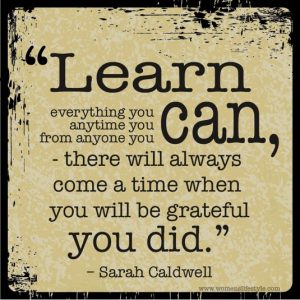Developing Competencies
The Foundation Challenge
The Competencies of a Young Adult
This is the third core challenge to go with forming a young adult identity and developing relationships. The key questions to be answered are:
- What do I need to be able to do to succeed as a teenager and as a young adult?
- What knowledge must I gain, what skills must I develop, what attitude or approach to life must I develop?
- How do I do that?
- Who can help me?
Note. This is a challenge where you can have a surprising amount of control over the experience and outcomes. Building the competencies to be a successful young adult is more straightforward than dealing with the Identity and Relationships. That’s not to say that it is easy or that it doesn’t take a lot of effort, but it is more within your realm of control.
You can develop some of these competencies in the settings you normally inhabit, like school, home and work. But some of these competencies require that you think creatively about where and how to develop them.
The Good News
The good news is that you don’t have to master all of these competencies. Some you just need to be just OK at, some you need to be good at a few you will need to master. One of the key parts of this section of the site is the focus on the mastery process, particularly “learning to love the plateau”, which is one of the secrets for a successful life.
Table of Contents – Competencies
The Foundation for Adulthood
1. There are Twelve Types of Competencies to be Built
2. Competencies are Developed in Many Places & in Different Ways
3. You Don’t Have to Master All the Competencies
4. There Are Four Stages of Competency Development
It’s a Journey – It Takes Time
5. Be the Author – Take Charge of Your Competency Development
6. Your Trajectory on the Journey is the Key
7. Create Your Competency Plan – It’s About You & What You Want
8. Find the Support You Need – Heroes Never Go Alone
The Keys to Mastering Your Competencies
9. “Learning to Love the Plateau” – Where Mastery Happens
10. Habits & Practice Are Key – “Oh No”
Pitfalls on the Journey
11. Failing to “Heed the Call” to Go Forth or Failing to “Be the Author”
12. Focusing on Outcomes vs. the Journey
13. Failing to Plan Well – “Over-doing it or Under-doing it”
15. Failing to Persevere or Build on Setbacks/Failures
